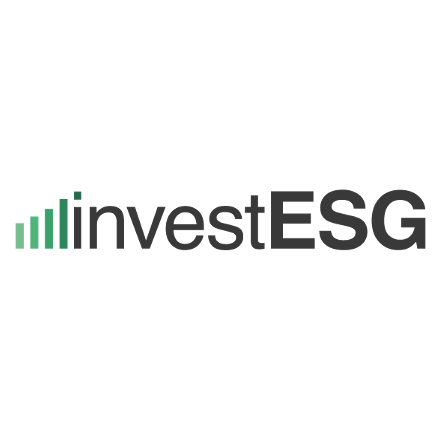INSIGHT by TNFD


© Vlad Hilitanu
The Taskforce on Nature-related Financial Disclosures (TNFD) releases its fourth and final beta framework for nature-related risk management and disclosure.This release marks the fourth (v0.4) and final draft of the framework with the TNFD on track to publish its final recommendations in September 2023. For the first time, market participants can view a full representation of the framework, including the Taskforce’s proposed approach to disclosure metrics.Since the start of its work in October 2021, the TNFD’s open and iterative approach to the design and development of the framework has garnered the support of over 1,000 organisations of the TNFD Forum, and 200 organisations now pilot testing aspects of the draft framework around the world and across sectors. The draft framework, available on the TNFD website, has been viewed over 90,000 times from market participants across more than 150 countries and territories.Feedback from market participants and other stakeholders has broadly endorsed the three core elements of the draft framework: the core concepts and definitions; the proposed risk and opportunity assessment approach (LEAP); and the draft disclosure recommendations aligned with those of the TCFD. The Taskforce has made minor adjustments since the last release to its proposed risk and opportunity assessment process and reduced its proposed recommended disclosures from 15 to 14 based on feedback.
The TNFD framework is anchored by the same four pillars of the TCFD approach and all 11 of the TCFD recommended disclosures have been incorporated into the TNFD final draft, providing market participants with a high level of alignment with the structure, language and approach taken by the TCFD.
The TNFD framework is anchored by the same four pillars of the TCFD approach and all 11 of the TCFD recommended disclosures have been incorporated into the TNFD final draft, providing market participants with a high level of alignment with the structure, language and approach taken by the TCFD. This should encourage and enable market participants to move towards integrated climate-nature disclosures.Like the TCFD, the TNFD is developing a global framework for risk management and disclosure, not a standard. The final draft draws from, and is designed to inform, relevant standards including those from the International Sustainability Standards Board (ISSB) and the Global Reporting Initiative (GRI), both knowledge partners to the TNFD.For the first time in this final draft, the Taskforce has outlined its approach to disclosure metrics proposing a tiered approach of leading indicators, many drawn from existing standards, that seeks to strike the right balance between being science-based and yet practical for market participants to use as part of the annual reporting cycle and on a limited assurance basis. The metrics approach also seeks to provide report users, as the providers of capital, with comparability across and within sectors; while at the same time providing report preparers with flexibility, acknowledging the differences in nature-related issues across sectors and business models. Finally, the approach is also designed to allow organisations to signal their alignment to global policy goals, such as the recently negotiated Global Biodiversity Framework (GBF) much as they are now doing with climate reporting and net zero transition planning aligned to the goals of the Paris Agreement. The three tiers of proposed disclosure metrics are:- Core Global Disclosure Metrics – that are relevant broadly to organisations across sectors and are reflected in global policy priorities, including the Global Biodiversity Framework;
- Core Sector Disclosure Metrics – to enable capital providers to make comparable assessments of businesses within a sector; and
- Additional Disclosure Metrics – to enable report preparers to include metrics that might be particularly relevant to their business model and nature-related issues.
Following a final 60-day consultation process, from 30 March to 1 June 2023, the TNFD’s final recommendations based on final feedback and pilot testing (v1.0) will be published in September 2023.
David Craig, Co-Chair of the Taskforce said: “This fourth and final draft of the TNFD framework will provide market participants, for the first time, with a full representation of the core aspects of the proposed TNFD framework, including examples of additional guidance by sector and biome and a recommended set of disclosure metrics. This has been the culmination of a lot of work to bring a science-based approach but make the complexity of the science of nature accessible and relevant to market participants. We are delighted by the level of active participation from the market, including pilot testers, throughout this design and development phase which will help to underpin strong market support when the final recommendations are published in September.”Elizabeth Mrema, TNFD Co-Chair and Deputy Executive Director of UNEP said: “COP15 in Montreal saw very strong support from business and finance globally, with over 1,000 private sector participants attending. That helped ensure a robust corporate reporting target, Target 15, in the Global Biodiversity Framework (GBF) now supported by over 190 governments and covering nature-related impacts, dependencies and risks. I was delighted to see over 2,000 people join a recent TNFD webinar on how the emerging TNFD framework will help business and finance deliver on Target 15 and other GBF targets. I look forward to further market feedback and participation ahead of the September launch of our recommendations so that market participants can start identifying, assessing and disclosing their nature-related issues as soon as possible. Ongoing collaboration with our standards development partners and with regulators will also be critical to help codify the Taskforce’s recommendations so that nature-related reporting becomes standard business practice over time.”In addition, two new Consultation Groups have joined the TNFD. WBCSD convened the ASEAN Consultation Group in February 2023. Finance Denmark (FIDA) and the UN Global Compact Network Denmark will co-convene a Nordic Consultation Group in April 2023. All opinions expressed are those of the author and/or quoted sources. investESG.eu is an independent and neutral platform dedicated to generating debate around ESG investing topics.
Published by
 investESG
investESG
 investESG
investESG

